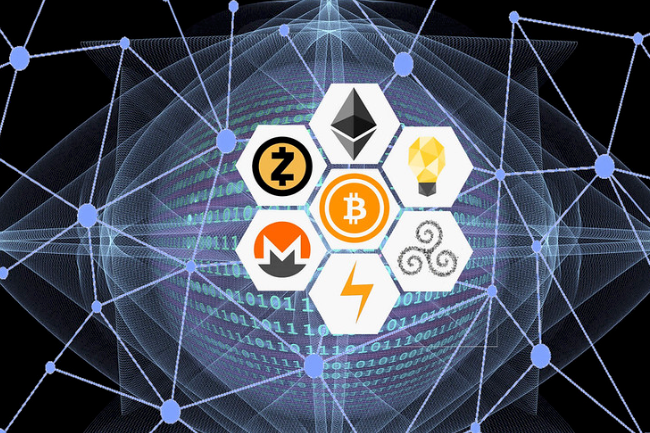What are Blockchain Wallet Development Trends?

Blockchain wallets are secure digital wallets that enable users to store, manage, and transact their cryptocurrencies. Blockchain wallets are secure digital wallets that enable users to store, manage, and transact their cryptocurrencies. We will explore the emerging trends in blockchain wallet development, highlighting key advancements and their implications for the future.
Table of Contents
Introduction
Blockchain wallet development services have revolutionized how we manage and interact with digital assets. They provide a secure and convenient platform for storing and transacting cryptocurrencies, eliminating the need for intermediaries. As blockchain technology advances, several key trends are shaping the future of blockchain wallet development. These trends include enhanced security features, improved user interfaces, decentralized finance (DeFi) protocols integration, and support for a wider range of cryptocurrencies. With the growing demand for blockchain wallet development services, companies are focusing on providing innovative solutions to cater to the evolving needs of users. Developing multi-chain wallets that support multiple blockchain networks is gaining traction, enabling users to seamlessly manage their assets across different platforms.
Additionally, integrating biometric authentication, hardware wallets, and other advanced security measures ensures the protection of digital assets from potential threats. Moreover, user-friendly interfaces and intuitive design are becoming paramount to enhancing the user experience and making blockchain wallets more accessible to mainstream users. As the blockchain ecosystem expands, integrating blockchain wallet services with DeFi protocols allows users to leverage the full potential of decentralized finance, including lending, borrowing, and yield farming. Furthermore, with the proliferation of various cryptocurrencies and tokens, blockchain wallets are being developed to support a wider range of digital assets, providing users with more options for managing their portfolios. In summary, the future of blockchain wallet development services is focused on enhancing security, improving user experience, integrating with DeFi protocols, and expanding support for multiple cryptocurrencies, all aimed at providing users with a seamless and efficient way to manage their digital assets.
This is why hiring blockchain developers is highly recommended.
The Rise of Multi-Currency Support
Blockchain wallets are no longer limited to supporting a single cryptocurrency. With the growing number of digital assets available, modern blockchain wallets incorporate multi-currency support. This trend allows users to manage and transact with various cryptocurrencies within a single wallet interface, streamlining the user experience and catering to diverse investment portfolios.
Enhanced Security Measures
Security is paramount in blockchain, and wallet developers continuously improve security measures to protect user funds. Advanced encryption techniques, multi-factor authentication, and biometric authentication are becoming standard features in blockchain wallets. Additionally, integrating hardware wallets and cold storage solutions adds an extra layer of protection against online threats.
Integration of Decentralized Finance (DeFi)
Decentralized Finance, or DeFi, has gained significant traction in recent years. Blockchain wallets are now integrating DeFi functionalities, enabling users to access lending, borrowing, and staking services directly from their wallets. This integration fosters financial inclusivity, eliminates intermediaries, and empowers users with greater asset control.
Improved User Experience
User experience plays a crucial role in driving blockchain wallet adoption. Wallet developers focus on creating intuitive and user-friendly interfaces that cater to novice and experienced users. Streamlined onboarding processes, simplified transaction flows, and informative dashboards are some of the key improvements enhancing the overall user experience.
Interoperability and Cross-Chain Transactions
Blockchain networks are expanding rapidly, and interoperability has become a pressing concern. Wallet developers are integrating cross-chain functionality, enabling users to transact seamlessly across different blockchain networks. This trend fosters interoperability between blockchains and promotes the free flow of digital assets.
Hardware Wallets and Cold Storage
Hardware wallets offer an additional layer of security by keeping private keys offline. These wallets, typically in the form of USB devices, ensure that users’ funds remain safe from online threats. As blockchain wallet development progresses, the demand for hardware wallets and cold storage solutions will increase.
Mobile Wallet Dominance
Mobile wallets have emerged as the dominant platform for blockchain wallet usage. With the proliferation of smartphones, users can conveniently manage their digital assets on the go. Mobile wallets offer accessibility, ease of use, and the ability to transact anytime, anywhere. As a result, mobile wallet development is witnessing rapid growth and innovation.
Privacy Enhancements
Privacy is a fundamental aspect of blockchain technology, and wallet developers are addressing this through privacy-focused features. Techniques like zero-knowledge proofs and ring signatures are being integrated into blockchain wallets to enhance user privacy and anonymity. These developments give users full control over their personal information and transactional data.
Wallets for Non-Fungible Tokens (NFTs)
The recent explosion of interest in non-fungible tokens (NFTs) has led to the development of specialized wallets for NFT management. NFT wallets provide users with a dedicated interface for storing, trading, and showcasing their unique digital assets. These wallets often include features such as artwork galleries and marketplace integrations, catering specifically to the needs of NFT enthusiasts.
The Impact of Artificial Intelligence (AI)
Artificial Intelligence (AI) is making its way into blockchain wallet development, revolutionizing various aspects of the user experience. AI-powered features like personalized asset recommendations, automated portfolio management, and smart transaction analysis are being incorporated into blockchain wallets. These advancements aim to simplify decision-making processes and provide users with tailored insights.
Regulatory Compliance and Know Your Customer (KYC) Solutions
As blockchain technology gains mainstream adoption, regulatory compliance becomes a crucial consideration for wallet developers. KYC solutions are implemented to ensure that wallets adhere to regulatory frameworks and prevent illicit activities. These measures contribute to the trustworthiness of blockchain wallets and foster greater acceptance by financial institutions.
Scalability and Transaction Speed
Scalability has been a long-standing challenge for blockchain networks, and wallet developers are actively addressing this issue. Blockchain wallets can facilitate faster and more cost-effective transactions by implementing layer-two scaling solutions like state channels and sidechains. Scalability improvements contribute to the seamless user experience and widespread adoption of blockchain wallets.
Blockchain Wallets for Enterprise Use
Blockchain wallets are not only limited to individual users but are also gaining traction in the enterprise space. These wallets cater to the unique needs of businesses, offering features such as multi-signature transactions, permissioned access controls, and audit trails. Blockchain wallets for enterprise use provide secure and efficient management of corporate digital assets.
Conclusion
Blockchain wallet development continues to evolve, driven by the ever-changing landscape of blockchain technology. The trends discussed in this article highlight the industry’s focus on multi-currency support, enhanced security, DeFi integration, user experience improvements, and various other advancements. Staying informed about these trends is essential for individuals and businesses seeking to leverage the benefits of blockchain wallets.


